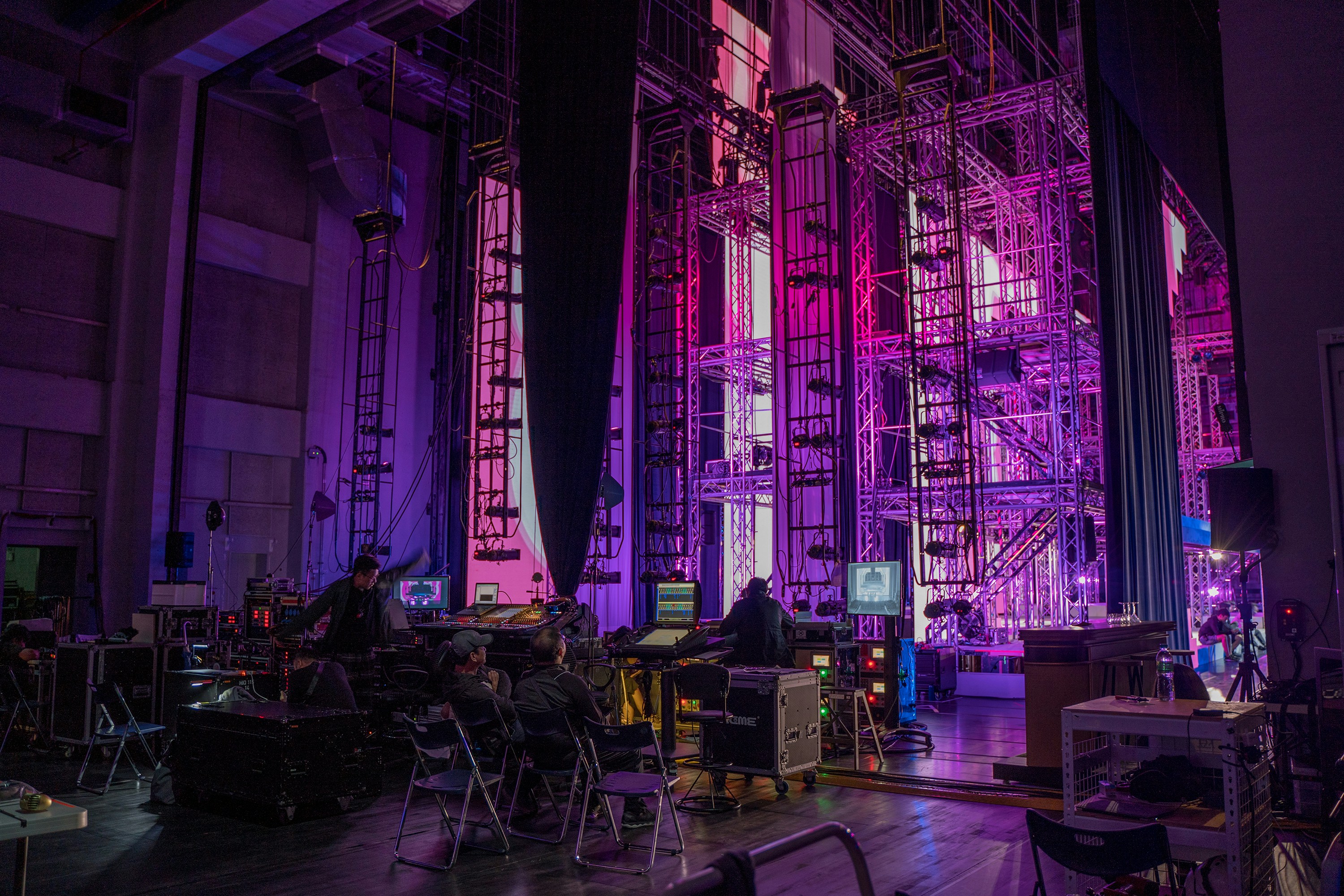Table of Contents
In the realm of artificial intelligence, particularly regarding generative pre-trained transformers (GPT), organizations often engage in debates over which model is superior. The discourse frequently revolves around terms like “goodGPT” or “betterGPT,” with the implication being that one large language model may outperform another. However, this conversation tends to oversimplify the complexities involved in selecting an AI solution.
The crux of the matter extends beyond the superficial comparison of AI models. It delves into strategic considerations such as the “build vs. buy” dilemma and the overarching governance and data privacy themes. The decision to either develop a proprietary AI system (“build”) or to procure an existing solution (“buy”) is not one to be taken lightly. It should be the culmination of a thorough architectural and economic analysis, taking into account the organization’s specific data protection requirements.
Building or buying approaches have their merits and can be the right choice under different circumstances. The “build” option allows for high customization and control over data governance, which can be crucial for organizations with stringent data privacy needs. On the other hand, the “buy” option offers a quicker route to deployment and may come with established security and compliance measures, which can be appealing for organizations looking to implement AI solutions rapidly.
Ultimately, the decision should stem from a well-informed evaluation of the organization’s unique needs. This includes assessing the ability to meet data protection standards, whether through internal capabilities or through the assurances provided by a vendor. In essence, the “build vs. buy” decision is not just a technical choice but a strategic one that should align with the organization’s data privacy policies, resource availability, and long-term goals. It’s a decision that reflects the organization’s commitment to responsibly harnessing the power of AI while upholding the trust of those whose data is being processed.
This article will explore the criteria for making this decision, focusing on two prominent offerings in the Microsoft ecosystem: Microsoft Copilot and Azure AI Studio.
Understanding the Contenders Microsoft Copilot is an AI-powered assistant integrated within Microsoft 365 or Dynamics 365. It is designed to enhance productivity in applications like Outlook and Word or Customer Service and Sales. It leverages content from your tenant, providing natural language processing capabilities without the need for infrastructure or coding.
On the other hand, Azure AI Studio is a comprehensive platform allowing developers to build custom AI solutions. It provides access to Azure AI Infrastructure, Machine Learning, Cognitive Services, and OpenAI Services in one centralized hub.

Criteria for Decision-Making
Integration Needs:
Microsoft Copilot emerges as an essential AI companion for organizations and individuals who are deeply integrated into the Microsoft ecosystem. It is engineered to work in harmony with Microsoft 365 or Dynamics 365, augmenting the capabilities of these platforms by infusing them with intelligent automation and insights. Copilot’s strength lies in its ability to enhance the productivity tools you already use, such as Word, Excel, and Outlook, by providing smart suggestions, automating repetitive tasks, and facilitating data analysis, all within the familiar interface of Microsoft’s applications.
In contrast, Azure AI Studio is the architect’s tool for constructing AI solutions from the ground up. It is ideal for those requiring a custom-built AI catering to specific, often complex, operational needs. Azure AI Studio excels in integrating with a broad spectrum of services and data sources within and outside the Microsoft universe. This makes it particularly suitable for projects that demand high customization and integration with various APIs, databases, and third-party services.
Whether you’re looking to streamline your workflow within Microsoft’s suite of productivity tools or to build a highly specialized AI application, the choice between Microsoft Copilot and Azure AI Studio will be dictated by your specific needs for integration, customization, and the scope of services required.
Customization Level:
Azure AI Studio is a beacon of innovation in artificial intelligence, offering unparalleled customization capabilities. It is a platform that empowers professional developers and organizations to construct AI solutions meticulously tailored to meet their unique requirements. With Azure AI Studio, the possibilities are vast, allowing for creating sophisticated AI models that can process and analyse data, understand and predict trends, and automate complex processes.
The platform’s robust framework provides rich tools and services, including machine learning algorithms, cognitive services, and access to robust AI infrastructure. This enables users to craft custom AI applications ranging from simple bots to intricate systems capable of making autonomous decisions based on real-time data.
Furthermore, Azure AI Studio’s flexibility extends to its integration capabilities, allowing these custom AI solutions to interact with existing systems and data sources seamlessly. This ensures that the AI implementations are not isolated but integral parts of an organization’s broader technological ecosystem.
While not customizable to the same extent, Microsoft Copilot provides a ready-to-use solution with less setup complexity. Through Copilot Studio (low code), users can tailor their experience by integrating a wide array of readymade connectors. These connectors bridge Copilot and various data sources, applications, and services, enabling a seamless flow of information and functionality.
Moreover, Copilot Studio can create custom connectors for those with unique requirements beyond the scope of available connectors. Businesses and developers can construct bespoke integrations that align perfectly with their specific workflows and data ecosystems. Whether connecting to proprietary databases, third-party APIs, or specialized software, the custom connector feature ensures that Microsoft Copilot can be adapted to any environment, enhancing its utility and ensuring that it remains a versatile assistant in many scenarios.
Data Sensitivity:
Microsoft Copilot is designed to operate within the secure confines of the Microsoft 365 or Dynamics 365 Trust Boundary. This means that it adheres to stringent security protocols and compliance standards, ensuring that all sensitive data handled by Copilot is safeguarded against unauthorized access and breaches. The Trust Boundary is a testament to Microsoft’s commitment to data privacy. It gives users peace of mind that their confidential information remains protected within the ecosystem of Microsoft’s productivity tools.
On the other side of the spectrum, Azure AI Studio offers a powerful platform for building custom AI solutions, but with great power comes great responsibility—especially regarding data management. Users of Azure AI Studio must navigate the complexities of data security with diligence. The platform has robust security features; however, the onus is on the developers and organizations to implement these features effectively. This involves establishing proper access controls, encrypting data at rest and in transit, and continuously monitoring potential vulnerabilities.
Especially when dealing with private or sensitive information, Azure AI Studio users must be proactive in their security measures, ensuring that all data is handled in compliance with legal and regulatory requirements. Whether personal data, financial records, or proprietary business information, Azure AI Studio provides the tools necessary to maintain data integrity. Still, it is ultimately the user’s responsibility to utilize these tools to create a secure AI environment.
Development Resources:
Embarking on a journey with Azure AI Studio is akin to setting up a custom-built workshop. It requires a significant investment in development resources, encompassing both the human element of coding expertise and the technical aspect of infrastructure setup. This platform is designed for those with a clear vision of their AI-driven objectives and is prepared to allocate the necessary time and talent to bring these ambitions to fruition. The process involves writing precise code, configuring the environment, and ensuring that all components work harmoniously to create a solution tailored to specific needs.
In contrast, Microsoft Copilot is akin to a turnkey solution, ready to be deployed with minimal resource expenditure. As a pre-built service, it eliminates the need for extensive setup or specialized coding knowledge. Organizations can quickly onboard Copilot, integrating it into their existing Microsoft 365 or Dynamics 365 suite with ease. This approach is particularly beneficial for those looking to leverage AI capabilities without the overhead of building a system from scratch. Copilot’s streamlined implementation allows businesses to focus on their core operations while reaping the benefits of AI-enhanced productivity tools.
Cost Considerations:
When considering the financial implications of adopting AI solutions, Microsoft Copilot presents a compelling option for those already invested in the Microsoft ecosystem. The pricing structure of Copilot is intricately linked to Microsoft 365 or Dynamics 365 subscriptions, which can be a strategic advantage for existing subscribers. This integration means that the additional functionality provided by Copilot comes without the need for separate licensing, potentially streamlining budget allocations and reducing overall costs.
In contrast, Azure AI Studio represents a different kind of investment. While it offers a broad canvas for innovation, the costs associated with Azure AI Studio are variable and depend on several factors. These include the scale of deployment, the complexity of the AI solutions being developed, and the extent of resource consumption—such as compute power and storage. Additionally, there may be costs related to development efforts, especially if specialized expertise is required to build and maintain custom AI models.
For organizations that require highly specialized AI capabilities and have the resources to support development, Azure AI Studio could be the right choice despite the potential for higher initial costs. However, Microsoft Copilot could offer a more budget-friendly solution for businesses seeking to enhance their productivity tools with AI capabilities in a cost-effective manner, especially those already using Microsoft 365 or Dynamics 365. Ultimately, the decision hinges on the organization’s specific needs and financial strategies.
Scalability:
Azure AI Studio is designed for scalability, handling complex solutions that may need to grow over time. Microsoft Copilot’s scalability is inherently linked to Microsoft 365’s or Dynamics 365 capabilities.
Time to Market:
Microsoft Copilot can be deployed rapidly, offering immediate benefits with minimal setup. Azure AI Studio’s solutions take longer to develop but can offer more tailored functionality.
Conclusion
The choice between Microsoft Copilot and Azure AI Studio hinges on various factors, including integration needs, customization level, data sensitivity, development resources, cost considerations, scalability, and time to market. Microsoft Copilot is ideal for organizations seeking a quick, cost-effective AI solution that seamlessly integrates with Microsoft 365 or Dynamics 365, enhancing productivity with minimal setup. Conversely, Azure AI Studio offers extensive customization and scalability, making it suitable for organizations with specific, complex AI requirements and the resources to develop tailored solutions. Ultimately, the decision should align with the organization’s strategic goals, data privacy policies, and resource availability, ensuring a responsible and effective deployment of AI technologies; this could end by buying Microsoft Copilot or by building your “evenbetterGPT” solution.





Start the conversation